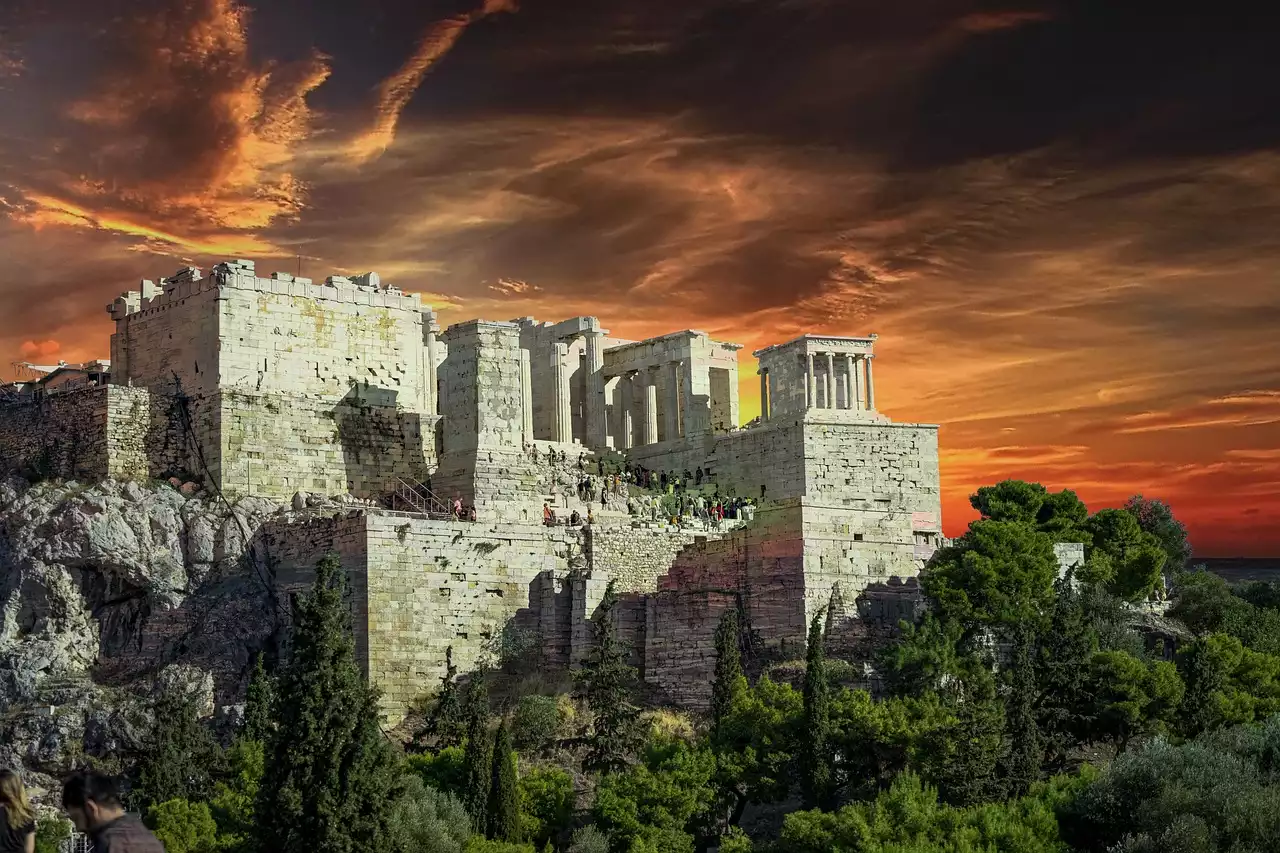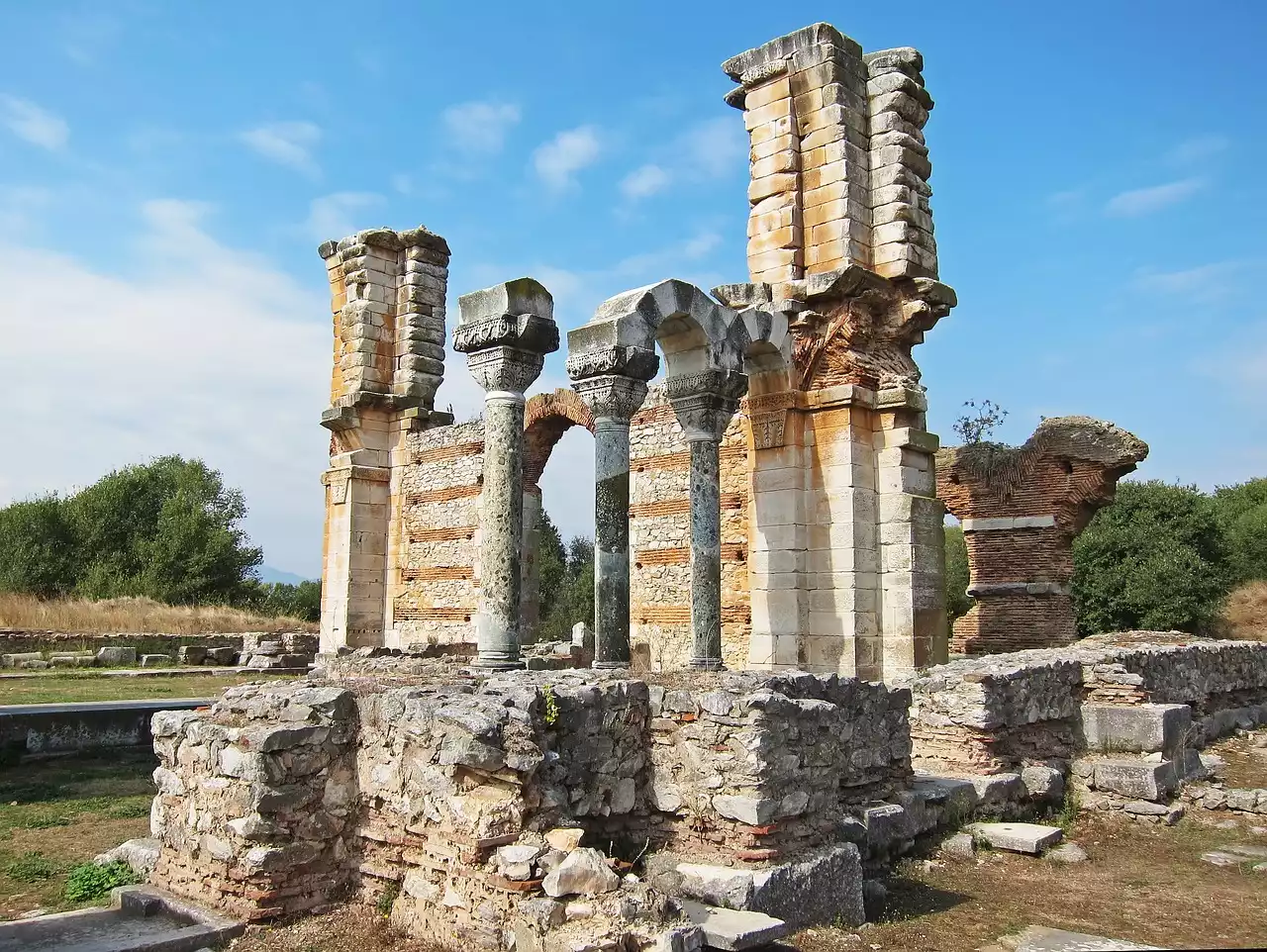The Birthplace of Democracy
Athens is widely regarded as the birthplace of democracy, a system of governance that has shaped the modern world. In ancient Athens, citizens had the power to participate in decision-making, making it the world's first known democracy. This revolutionary concept of self-governance laid the foundation for the democratic systems that exist today.
The concept of democracy in Athens was not without its flaws. Only male citizens were considered eligible to participate in the democratic process, excluding women, slaves, and foreigners. Nonetheless, the birth of democracy in Athens marked a significant shift in power dynamics and set the stage for the development of Western political systems.
The democratic ideals of Athens continue to resonate today, inspiring nations around the world to strive for inclusive governance and citizen participation. Athens' democratic legacy is a testament to the enduring impact of its history on the modern world.
Ancient Greek Philosophers and Their Impact on Western Civilization
Athens was not only the birthplace of democracy but also the intellectual hub of ancient Greece. It was home to some of the greatest minds in history, including philosophers such as Socrates, Plato, and Aristotle. These thinkers laid the foundation for Western philosophy, ethics, and political theory, influencing generations to come.
Socrates, known for his Socratic method of questioning, challenged conventional wisdom and encouraged critical thinking. Plato, one of Socrates' most famous students, delved into metaphysics, ethics, and the ideal forms of government. Aristotle, Plato's student, made significant contributions to logic, biology, and ethics, leaving a lasting impact on a wide range of disciplines.
The ideas and teachings of these philosophers have shaped Western civilization, influencing fields such as politics, education, and ethics. Their emphasis on reason, truth-seeking, and the pursuit of knowledge has become the cornerstone of Western intellectual thought.
The Acropolis: A Symbol of Athens' Cultural Heritage
Perched atop a rocky hill, the Acropolis stands as a symbol of Athens' cultural heritage. This ancient citadel houses several iconic structures, the most famous of which is the Parthenon. Built in the 5th century BCE, the Parthenon is a masterpiece of classical Greek architecture and a testament to the ingenuity and artistic prowess of the ancient Athenians.
The Parthenon was dedicated to the goddess Athena, the patron deity of Athens. Its intricate design and harmonious proportions have captivated visitors for centuries. Despite enduring centuries of war, weathering, and human intervention, the Parthenon remains an architectural marvel, standing as a reminder of Athens' golden age.
Exploring the ruins of the Acropolis allows visitors to step back in time and witness the grandeur of ancient Athens. From the Propylaea, the monumental gateway, to the Erechtheion, with its iconic porch of the Caryatids, every structure on the Acropolis tells a story of ancient Greece's cultural and artistic achievements.
Exploring the Ruins of Ancient Athens
While the Acropolis may be the most famous archaeological site in Athens, the city is teeming with ruins and remnants of its ancient past. A visit to the ancient agora, the heart of the city's civic life, reveals the bustling marketplace where merchants, politicians, and philosophers once gathered.
The Temple of Hephaestus, also known as the Hephaisteion, stands as one of the best-preserved ancient Greek temples in the world. Dedicated to the god of craftsmanship, it showcases the skill and artistry of ancient Greek architects and sculptors.
The Odeon of Herodes Atticus, an ancient amphitheater, speaks to the importance of theater and performance in ancient Athenian culture. Today, it still hosts performances and concerts, allowing visitors to experience the acoustics and ambiance of ancient Greek entertainment.
The Olympic Games: From Ancient to Modern Times
The Olympic Games, a global sporting event celebrated every four years, have their origins in ancient Greece. The ancient Olympics, held in Olympia, were a way for city-states to showcase their athletic prowess and honor the gods.
Athens played a significant role in the revival of the modern Olympic Games. In 1896, the first modern Olympics took place in Athens, reigniting the spirit of the ancient games. Since then, the Olympics have become a symbol of international unity and athletic achievement.
Athens hosted the Olympics once again in 2004, showcasing its modern infrastructure and reviving the city's Olympic legacy. The Olympic Stadium, also known as the Panathenaic Stadium, is a testament to Athens' connection to the games. Built entirely of marble, it is a stunning example of ancient Greek architecture and a must-visit for sports enthusiasts and history lovers alike.
Athens in the Byzantine Empire
After the fall of the Roman Empire, Athens became an important city in the Byzantine Empire. Byzantine Athens witnessed a flourishing of art, culture, and religious activity. Magnificent churches, such as the Church of the Holy Apostles, were built during this period, showcasing Byzantine architecture and religious iconography.
Despite facing several invasions and periods of decline, Athens remained a center of Byzantine power and influence. Byzantine art and culture left an indelible mark on the city, with stunning mosaics, frescoes, and religious artifacts adorning churches and monasteries.
Ottoman Rule and Athens' Struggle for Independence
In the 15th century, Athens fell under Ottoman rule, enduring centuries of foreign domination. During this period, many of the city's ancient monuments were repurposed or destroyed, and Islamic architecture and culture influenced the city's landscape.
Athens played a crucial role in the Greek War of Independence in the 19th century. The struggle for independence was marked by fierce battles and the determination of the Greek people to reclaim their homeland. The War of Independence culminated in the establishment of the modern Greek state, with Athens as its capital.
Modern Athens: A Blend of Ancient and Contemporary Influences
Today, Athens is a vibrant and bustling metropolis that seamlessly blends ancient history with modern influences. The city's archaeological sites and museums, such as the National Archaeological Museum and the Acropolis Museum, offer a glimpse into Athens' past and the treasures unearthed by archaeologists.
At the same time, Athens boasts a thriving contemporary culture, with a vibrant art scene, bustling nightlife, and a culinary landscape that showcases both traditional Greek cuisine and international flavors. Neighborhoods like Psiri and Gazi are popular destinations for locals and visitors alike, offering a mix of trendy bars, traditional tavernas, and live music venues.
The enduring legacy of Athens' history is evident in its architecture, traditions, and the pride of its people. While the city has evolved over the centuries, it remains deeply connected to its ancient roots, making it a captivating destination for history enthusiasts and curious travelers.
Conclusion: The Enduring Legacy of Athens' History
As we delve into the rich tapestry of Athens' history, we uncover the threads that have woven together to create the fabric of Western civilization. From the birth of democracy to the profound philosophies of ancient Greek thinkers, from the architectural marvels of the Acropolis to the revival of the Olympic Games, Athens has left an indelible mark on the world.
Through centuries of conquest, struggle, and renewal, Athens has emerged as a city that embraces its past while forging ahead into the future. It is a place where ancient history and contemporary culture seamlessly coexist, offering a unique and captivating experience for those who seek to understand and appreciate the roots of Western civilization.
So, embrace the opportunity to immerse yourself in Athens' history, to walk in the footsteps of the ancients, and to witness the enduring legacy of a city that has shaped the world as we know it. Let the rich tapestry of Athens' history unfold before you, and may it inspire you to explore the depths of human achievement and the profound impact of our shared past.














